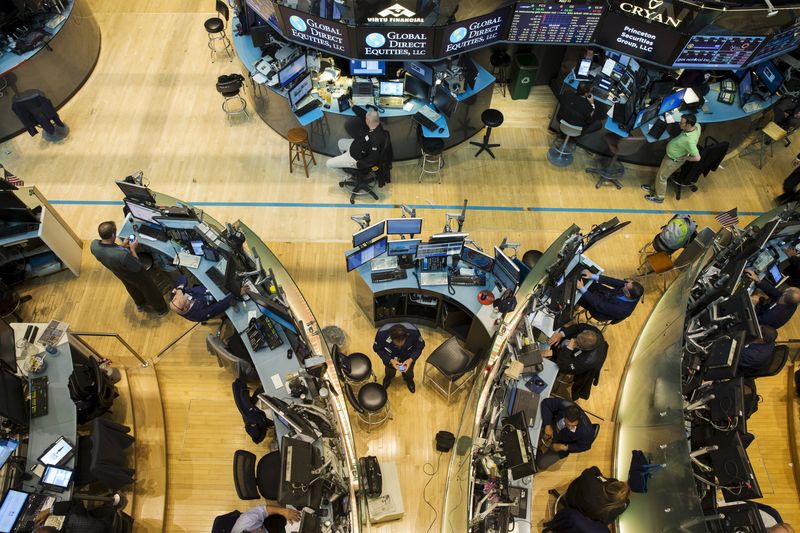By Geoffrey Smith
Investing.com -- China announced more measures loosening COVID-19 health measures after new data showed its trade slowed sharply in November. Apple's iPhone production is one of the casualties of that trend. Central banks in Brazil and Poland are expected to pause interest rate hikes, but Canada is set to tighten policy further. And Xi Jinping visits Saudi Arabia on a day when oil prices wipe out their gains for the year so far due to fears of a looming recession. Here's what you need to know in financial markets on Wednesday, 7th December.
1. China moves further away from Zero-COVID after alarming trade slump
Trade data out of China shed light on why Beijing is suddenly so keen to loosen its Zero-COVID strategy.
Exports fell 8.7% on the year in November, the most since the worst days of the pandemic in March 2020, while imports fell an even steeper 10.6%. Both figures were markedly weaker than analysts’ forecasts. The numbers were heavily influenced by the disruption of a new wave of COVID-19 but also by a sharp drop-off in global demand that is also evident in indicators such as shipping rates, which are now 50% off their peaks.
The central government in Beijing announced another 10-point plan loosening restrictions on Wednesday, limiting the ability of local government officials to arbitrarily lock down businesses and residential districts, as well as further loosening testing requirements for entry into public venues.
2. Canada set to hike by 50bps, but others may have reached peak rates; U.S. productivity data in focus
As the U.S. market frets about a higher terminal rate for fed funds, central banks elsewhere are starting to take their foot off the brakes.
Brazil and Poland, both of which started tightening monetary policy earlier than the Federal Reserve, are expected to hold their key interest rates at 13.75% and 6.75% respectively. Another early mover the Reserve Bank of Australia had nudged its rates higher by a modest 25 basis points on Tuesday.
By contrast, the later movers in developed markets are still very much in tightening mode. The Bank of Canada is expected to keep on hiking, pushing its key rate up by 50 basis points to 4.25%.
In the U.S. later, quarterly data for unit labor costs and productivity data may attract more interest than usual after November’s labor market report highlighted the scale of supply side problems in the labor market.
3. Stocks set to open slightly lower
U.S. stock markets are set to open lower later, trying to stabilize after a second straight day of heavy losses amid concerns that the Federal Reserve may cause a recession by raising interest rates above 5% next year.
By 06:30 ET (11:30 GMT), Dow Jones futures were down 44 points or 0.1%, while S&P 500 futures were down 0.2%, and Nasdaq 100 futures were down 0.3%. The three main cash indices lost between 1% and 2% on Tuesday.
Stocks likely to be in focus later include Sanofi (EPA:SASY) (NASDAQ:SNY) and GlaxoSmithKline (NYSE:GSK), after a U.S. federal judge threw out a closely watched test case alleging that their heartburn drug Zantac caused cancer. GSK leaped over 12% in early trading in London in response. Also in focus will be Meta Platforms (NASDAQ:META), which slumped nearly 7% on Tuesday after reports indicating that the EU will restrict its ability to market targeted ads on its social media networks.
4. Apple struggles on two fronts
One of the biggest factors behind the slump in Chinese exports was the disruption at Apple's (NASDAQ:AAPL) iPhone supplier Foxconn's (TW:2354) massive factory complex in Zhengzhou last week.
Norio Nakajima, President of key Apple supplier Murata Manufacturing, told Bloomberg on Wednesday that he expects further downward revisions to orders, with the key risk coming from the U.S. consumer.
Apple stock came under further pressure as Bloomberg reported that the company has pushed back the tentative launch date for its electric car by a year to 2026, after concluding that existing technology won’t allow fully autonomous driving.
There was more positive news for the company as its main chip supplier, Taiwan Semiconductor Manufacturing (NYSE:TSM), said it would triple its planned investment in Arizona, something that may ultimately cut Apple’s dependence on chips made in China and Taiwan.
5. Oil wipes out 2022 gains on recession fears as Xi arrives in Riyadh
Crude oil prices wiped out their gains for the year in response to the Chinese trade data, which amplified fears that the U.S. will lead the world into recession next year. That was despite a relatively strong performance
U.S. crude futures dipped as low as $73.81 a barrel overnight, while Brent futures touched $79.03 a barrel before recovering slightly in European trading.
Chinese President Xi Jinping is due to arrive in Riyadh on Wednesday for talks with Saudi Arabia and other Gulf nations, which may have implications for OPEC’s output plans. In the U.S., meanwhile, government crude inventory data are expected to show another sizeable decline of 3.3 million barrels last week, albeit that’s a big drop from the previous week’s 12.6 million barrel drop.
